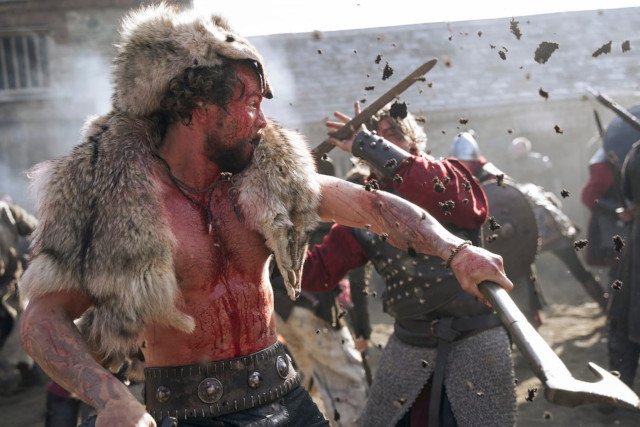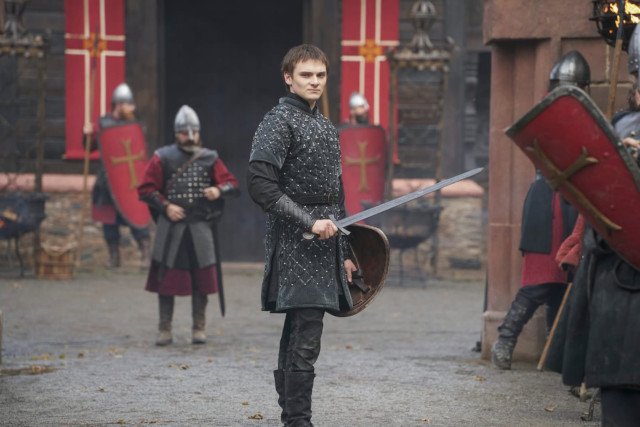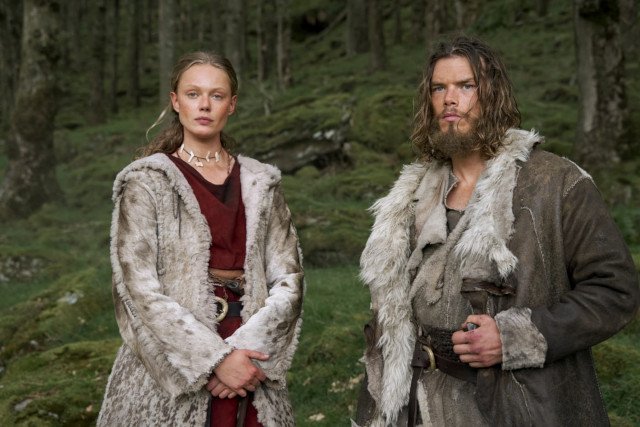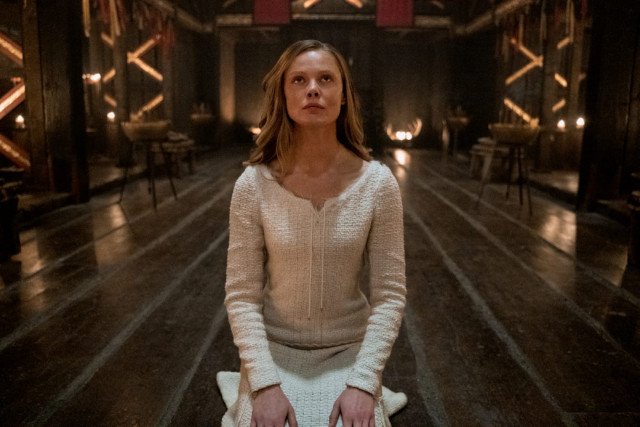Vikings: Valhalla (2022) TV series | obiter dictum
As the senseless and insane war near the borders of European Union rages on, a batch of episodes to Vikings series sequel had been released. The last season of original Vikings partly dealt with prince Oleg of Kievan Rus’, emphasizing the fact that the viking world spread far beyond Scandinavia. The war we are witnessing today in Europe is one which is taking place on the old lands of Varangians. The dead that lay in Ukraine’s soil since those times may understand and have no issues with the way the current conflict is being settled, but the living had seen something better, a lot more constructive and productive – we may not agree with the dead and, I think, that’s perfectly fine. We don’t have to listen to them when it comes to conflicts because, for one, we want to continue to enjoy life.

From the set of Vikings: Valhalla series. Source
I figure this writing would be for those, who amongst all the turmoil that’s changing the world right now, hadn’t yet had time to watch the Valhalla, and are wondering what’s new in this sequel, and what’s the overall quality of it. So all this had been written with that in mind.
Up to now there had been 8 episodes released on Netflix, they end with events taking place in Kattegat, and haven’t got a conclusive finale. I don’t see this as a spoiler because for Vikings “events in Kattegat” can be anything really, from preparing to leave for a raid to invasion to “Blood Eagle” ritual, and everyone knows that there are going to be events in Kattegat. So no change in this sense. However, we have by all means an unexpected ruler of Kattegat – Jarl Estrid Haakon (played by Caroline Henderson) with African ancestry. It’s not difficult to imagine the problem the far-right will have with this. To me personally that was an intriguing part though because it got me wondering how the screenwriters will explain it. The explanation is provided when Estrid tells another of the series’ lead protagonists Freydís Eiríksdóttir (played by Frida Gustavsson) about her heritage. This is an interesting story as well as a reminder about the scope of Viking explorations, travelling, and the sociology regarding their world.

Louis Davison as Prince Edmund in Vikings: Valhalla series. Source
Kattegat however is hardly at the center of the series’ world. What we see more is London of the 11th Century as well as Uppsala. Vikings are now okay with someone in their midst being a Christian. In fact, there is a fair number of Northmen accepting the one true God in Valhalla. The Old Gods live alongside Jesus without issues. I personally have always found things like that peculiar considering that in Sweden, for instance, there is no evidence of translated scriptures before the 14th Century. Which is to say that it had to be largely a word-of-mouth belief coming from Anglo Saxon sources. When I try to think about why I would convert to a new, kinda trendy word-of-mouth belief system, discarding the centuries old gods of my ancestors, I can only come up with a theory that the new word-of-mouth belief system looked like a lot more effective unifying force, sparing, for instance, trouble of reprisals Floki had to deal with in Iceland, when trying to establish a new colony.

Frida Gustavsson as Freydís Eiríksdóttir and Sam Corlett as Leif Eriksson in Vikings: Valhalla series. Source
A lot of people loved Ragnar. Obviously, Ragnar isn’t in Vikings: Valhalla, but we’ve got a new hero to try and like, and root for – someone everyone calls Greenlander, played by Australian actor from New South Wales, Sam Corlett. (His character’s real name in the series though is Leif Eriksson.) Greenlander proves himself as an inventive character, and a risk taker during the first half of the 8 episode batch, which deals largely with invading London, and a game of thrones afterwards. There is a decent mix of military strategising, historical facts and politics here. But at the same time Michael Hirst’s screenwriting absence can be noticed – what is largely absent, when compared to the original series, is the depiction of everyday life of common folk as well as that of viking leaders. One might argue that it’s all been covered before, yet exactly that aspect made the series more lifelike by comparison.

Freydís Eiríksdóttir in Uppsala in Vikings: Valhalla series. Source
Amongst the things that had been brought forward from the Vikings series is Uppsala with its temple. I was particularly happy to see my favourite character, the good old Seer (John Kavanagh) to be well and kicking, if only as an astral vision. Uppsala’s set is perhaps, along with that of London, amongst the eye-candiest sights in Vikings: Valhalla. It features traders of traditional old applied arts, which even spoke to me on a personal level since part of my childhood had been spent in similar settings. Moreover, I found the meaning of Uppsala in this part of series to be a well thought-out one, an important testimony to the clash of cultural and spiritual beliefs at the time. It depicts, if only in a miniature yet fair and in-depth manner the conflicts that the North Eastern part of Europe was facing.
I liked Uppsala, and the depiction of visions. Hopefully in the future the mystical, spiritual, cultural side of things will have the same share of screen time and at least that same quality. Skåll!
Peer Ynt
Valhalla is heaven in Norse mythology.
I'm doubtful about that, even if looked from a perspective of Abrahamic religion because Heaven is supposed to be for each righteous, virtuous, worthy soul while Valhalla is for gods and warriors. Besides, one can see in the original Vikings series it being depicted as a big castle-like hall made of wood.